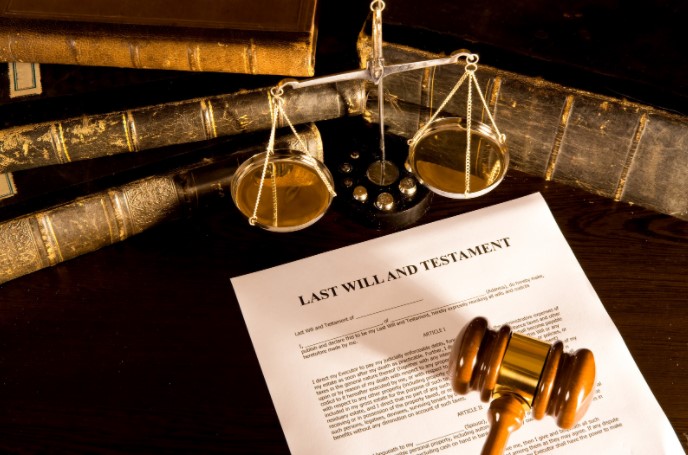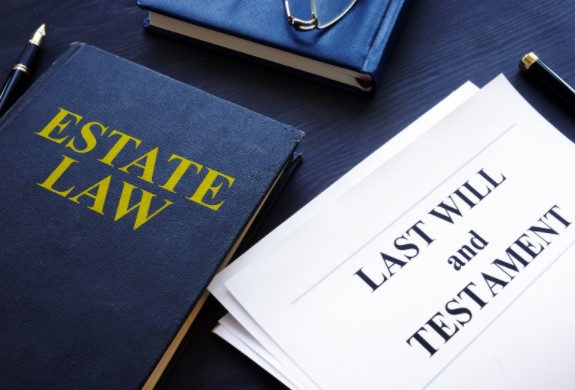Table of Contents
Preparing your will in advance is definitely a good decision, as it helps your descendants avoid collisions with probation processes. Nonetheless, it is common that somebody dies without completing their last will and testament and the appropriate estate planning. In that case, it is up to the state law to decide on the deceased person’s final wishes and their estate arrangements.
However, even if the will exists, it can be challenged by the heirs who would not acknowledge it. It might have also been composed incorrectly. If the will is declared invalid, the testator’s property will also be distributed according to the intestate succession.
The intestate succession laws may be confusing and different in every state, but there are still some standard regulations of the process.
Probation Process
When a person dies in intestacy, it becomes the state’s responsibility to take care of their assets. It means that the court-appointed administrator will collect all the deceased’s assets, pay any liabilities, and distribute the remaining money and real estate among those parties considered to be beneficiaries.
Intestacy laws apply only when somebody dies without an estate plan.
The probate process involves the distribution of the deceased person’s estate following state laws. Probate courts begin this process by appointing an administrator to oversee the estate of the dead. The administrator acts as executor (the legal representative). They gather as much information as possible, such as bank account statements or life insurance policies. It is also their responsibility to receive all legal claims to the inheritance and regulate any debts, such as unpaid bills.
The inherited property does not include estate that passes directly to the named beneficiary in any other way, such as a deed or life insurance policy.
Sometimes they may be asked to find legal beneficiaries of the decedent. And while thoughts of unexpected inheritance from some forgotten distant relatives may sound attractive, it is, in fact, the leading cause of inheritance scam letters. You may want to be fully prepared and take legal advice before taking any steps.
Heirs at Law
Despite the existing differences in state regulations, inheritance legislation is primarily aimed at protecting the property interests of the surviving spouse, children, and, in the absence of the latter, the parents of the deceased person.
By law, blood relatives and the surviving spouse are the main inheritors. This group includes surviving children, parents, brothers and sisters, aunts and uncles, nieces and nephews, and other relatives. Inheritance is not limited to any degree of kinship in most states. It is also important to mention that adopted children are treated in the same manner as the biological ones. In some states, family members of the surviving spouse may inherit if there is nobody else left.
In most states, the first-line heirs include a spouse and children, but their shares in the inherited estate are not equal. The spouse’s share depends on whether the testator has children and can be from half to one-third of the property, and if there is no offspring, the surviving spouse can receive the entire property.
If widowed or unmarried by the time of death, children are entitled to all inherited property in the surviving spouse’s absence. Children inherit a share of the deceased’s property minus the inheritance due to the surviving spouse. And in the event of the death of any of the children or all of them the testator’s grandchildren will be next in line to inherit. Parents and other relatives of the deceased do not inherit in this case.

Adult descendants are capable of the immediate entrance of the inheritance. In the case of minors, their inherited property or assets remain under the custody of their legal guardians.
Close friends and unmarried partners of the deceased person, no matter how strong their emotional connections were throughout life, can not be listed as heirs under state probate laws for intestate inheritances. If the person dies without anybody who can inherit the assets, their property will become the state’s property.
Unworthy heirs, which include people who criminally caused harm to the testator during their lifetime, are determined not to inherit any assets or properties either by law or by will.
Conclusion
In the legislation of almost any country, there is a section regulating the relations of citizens regarding inheritance. It is natural: their parents and grandparents form the material basis of descendants. Inheritance by law is not a restriction of the testator’s will but a replenishment of it.
Inheritance and probate inheritance can be a complex area of law, and laws can change frequently, so you may consider getting some legal advice when put in such a situation. Try to learn as much as possible about your rights and possible courses of action so that the probation processes would run smoothly for you.
Author Profile

- Blogger by Passion | Contributor to many Business Blogs in the United Kingdom | Fascinated to Write Blogs in Business & Startup Niches |
Latest entries
 BusinessJanuary 9, 20266 Fastest Cash House Buyers in the UK 2026
BusinessJanuary 9, 20266 Fastest Cash House Buyers in the UK 2026 BusinessDecember 12, 2025The Smart SME’s Guide to Future-Proofing Physical Assets
BusinessDecember 12, 2025The Smart SME’s Guide to Future-Proofing Physical Assets FinanceOctober 28, 2025How to Measure the ROI of Your Promotional Product Campaigns?
FinanceOctober 28, 2025How to Measure the ROI of Your Promotional Product Campaigns? Home & LivingOctober 4, 2025Moving Forward When Leicester Family Dynamics Change
Home & LivingOctober 4, 2025Moving Forward When Leicester Family Dynamics Change







